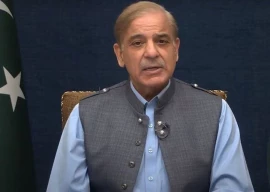Contrary to the government’s perceived efforts to prolong the Swiss letter issue, the apex court seems to be in no mood for any delays.
However, the swiftness with which the court has acted is likely to trigger more protests on the part of the government – particularly for technical reasons, such as the composition of the bench.
The Supreme Court announced on Saturday that a five-judge bench would take up the federation’s review petition against the National Reconciliation Ordinance (NRO) implementation case on August 15.
The government, last week, challenged a July 12 court order that asked Prime Minister Raja Pervaiz Ashraf to write a letter to Swiss authorities seeking the reopening of money laundering cases against President Asif Ali Zardari – an order that originally came when the court struck down the NRO back in 2009.
The government has long refused to comply with this order. Premier Ashraf’s predecessor, Yousaf Raza Gilani, was disqualified after the court found him in contempt due to his non-compliance.
Shortly after being sworn in as prime minister, Ashraf was asked by the court, on July 12, to submit a compliance report regarding the same issue. However, the government has asked for a review of this order. Through its review petition, the federal government has asked the court to set aside the order, which, it maintains, is not implementable for a number of reasons.
The move may not hold for very long, given that the court has reiterated on a number of occasions, including at its last hearing, that the proceedings of the NRO judgment implementation case was now a matter of the implementation of the 2009 NRO verdict, not the verdict itself – given that the NRO judgment had attained finality. Part of the 2009 verdict was to write to Swiss authorities to reverse an earlier decision to remove Pakistan as a party in the cases against President Zardari.
Bench composition
The move to review was being viewed largely as a delay tactic by the government. And Saturday’s announcement by the Supreme Court has spurred the government into questioning the court’s haste given the composition of the review bench.
Chief Justice Iftikhar Muhammad Chaudhry announced on Saturday that the review bench would be headed by Justice Asif Saeed Khosa and would comprise Justice Sarmad Jalal Usmani, Justice Ejaz Afzal Khan, Justice Gulzar Ahmed and Justice Ather Saeed.
However, Justice Ijaz Ahmed Chaudhry, part of the bench that originally passed the July 12 order that the government has asked for a review of, is not included in the review bench. His exclusion is due to non-availability as he will be observing Aitakaaf during the last 10 days of Ramazan.
According to the practice of the court, the composition of the bench in review jurisdiction does not change. And the government knows that.
It is likely that proceedings of the review petition, to be taken up on August 15, would be further delayed as the federation has seemingly made up its mind to raise objections over the composition of the bench.
“…usually the court does not change the composition of bench when a review petition is filed and we will take up this matter,” said Attorney General Irfan Qadir, while talking to The Express Tribune.
“Why is such haste being made?” he questioned.
Published in The Express Tribune, August 12th, 2012.



1725030039-0/Untitled-design-(2)1725030039-0-165x106.webp)
1725366721-0/kyle-(1)1725366721-0-165x106.webp)




1732696613-0/BeFunk_§_]__-(59)1732696613-0.jpg)
1732622842-0/Express-Tribune-(9)1732622842-0-270x192.webp)






COMMENTS
Comments are moderated and generally will be posted if they are on-topic and not abusive.
For more information, please see our Comments FAQ